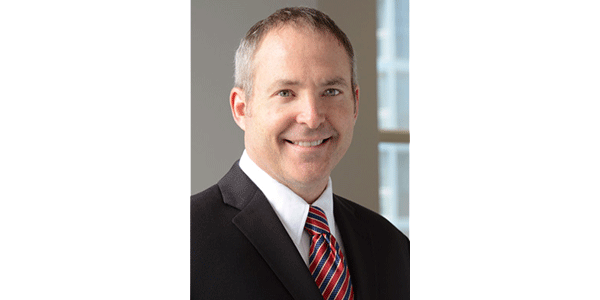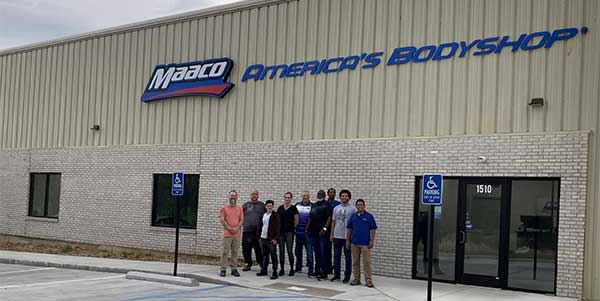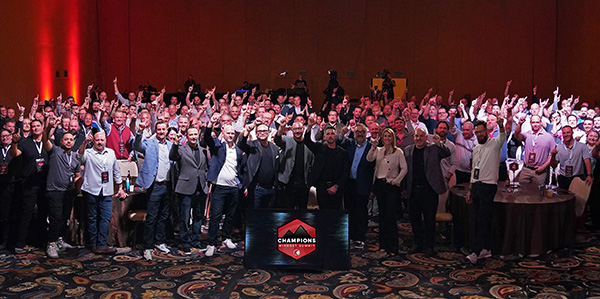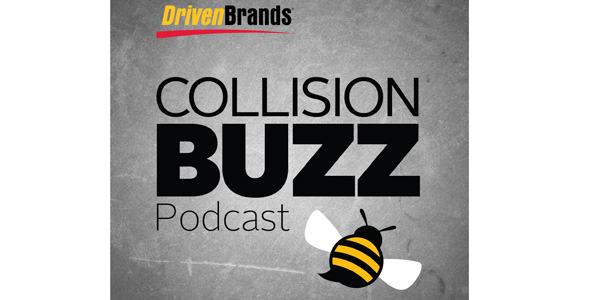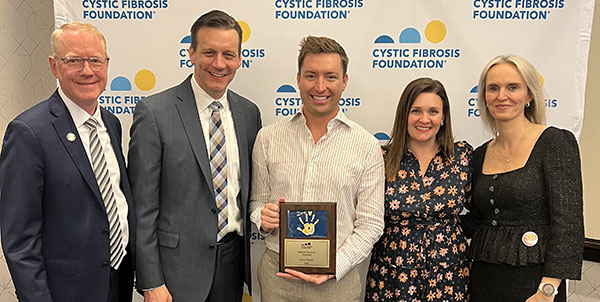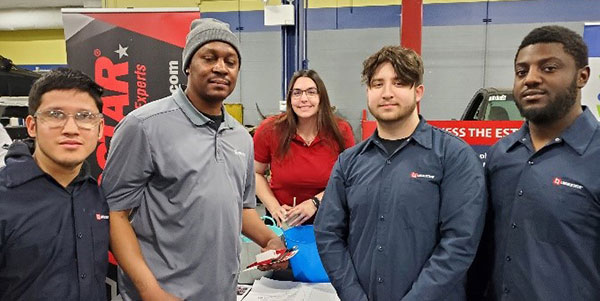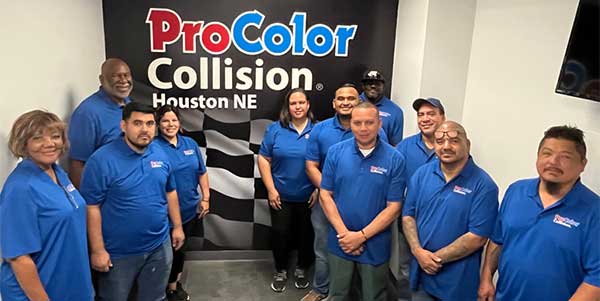Focus Advisors, one of the most successful M&A advisory firms in the automotive aftermarket, has offered a mid-year update on the collision repair market and consolidation going on in the marketplace.
Operations
Average shop revenues are down 25 to 30% across the country, although it varies by region and by the intensity of regional COVID-19 cases. Most shops are slowly returning to higher volumes. The best news, according to Focus Advisors, is that many operators have figured out how to maintain close-to-normal margins on dramatically reduced revenues. The recession of 2009 taught operators how to both survive and then improve operations while under financial duress. Lessons well learned then are helping the best operators weather this even more extraordinary downturn, states Focus Advisors.
PPP loans have had a universally positive impact for those operators who were successful in their applications, claims Focus Advisors. The relaxation of repayment terms has been a positive development. Most loans are expected to be largely forgiven.
An interesting sidenote: anecdotally, most of the MSOs and shops that received PPP loans during the first application period obtained those loans from small and local banks and credit unions. Evidently the big banks focused on their largest customers. During the second application period, more loans were obtained from some of the big banks, but many MSOs not only didn’t get big bank loans but some never even heard back after their inquiries.
M&A Activity
The current level of mergers and acquisition activity keeps surprising Focus Advisors. Not surprisingly, the top two national consolidators continue to make offers and acquire independent shops and MSOs. But private equity (PE) firms have really stepped up their interest and investments, according to Focus. Five super regional MSOs are also in acquisition mode. Add to these numbers several dozen sub-regional MSOs that are continuing to make acquisitions largely using internal capital sources. Finally, Driven Brands now owns a nine-shop MSO and is pursuing more acquisitions.
Private Equity Interest Driving Activity
Industry buyers have changed dramatically in five years, states Focus Advisors. Five years ago, the most active buyers included the four big consolidators: ABRA, Caliber, Service King and Gerber. Plus, seven regional MSOs: Pacific Elite, Kadels, Cooks, Craftsman, Joe Hudson, Classic Collision and Car Care and one PE firm, Carousel Capital, which owned Driven Brands.
In the years since, almost all of those firms have disappeared into larger firms:
- ABRA bought Cooks Collision, then sold to Caliber
- ABRA bought Kadels
- Pacific Elite got bought by PE-backed Crash Champions
- Car Care got bought by Service King
- Joe Hudson got bought by TSG Consumer private equity
- Carousel owned Driven Brands, which it subsequently sold to Roark Capital
- Classic Collision was acquired by New Mountain Capital
Focus Advisors attributes the activity and the values to the number of new entrants into the collision space, mostly private equity firms – the highest seen in 20 years. New PE entrants have come flocking back to the market looking for opportunities that will benefit from increasing consolidation. Most see the stability and non-cyclical nature of collision repair as effective cash generators with modest risk, Focus states. Some are looking to buy and then sell out to someone larger. And some are probably looking to coattail Caliber and Driven, if and when they have IPOs, states Focus.
PE firms come in lots of sizes and varieties. The new participants range from $350 million in assets to more than $16 billion. Some are inexperienced in the industry but are anxious to learn. Some have hired CEOs who are highly skilled executives. Others have already found their platforms and are aggressively expanding. Ten are still looking for their first platform. All of them are looking for high-quality large MSOs in major metro areas.
Deal Terms and Structures Today
Five years ago, structures involved a variety of cash, stock, debt and earnouts, with most deals being done for cash, states Focus. Some deals were done as stock purchases, although most were asset purchases. Multiples ranged from five to 9x reconstructed EBITDA, with some outliers for very large MSOs.
Increasingly, deals are being measured on purchase price to revenues, with smaller shops in the 35 to 45% and medium-size MSOs in the 65 to 90% of revenues depending upon the strategic fit, EBITDA levels and ongoing management teams.
Today, Focus Advisors is seeing the same variety of consideration, with most all deals still being done as asset purchases. During this time of COVID-19, many are structured with both cash and earnouts with performance hurdles – some EBITDA-based and some revenue-based. Some are structured to share the risk between the sellers and the buyers. Multiples are trending lower for plain vanilla acquisitions but remain robust for quality platforms. OE certifications are driving increases in values – especially high-end brands.
National Consolidators Keep Buying
Assisted by an additional capital raise in the second quarter, Gerber has acquired more than two dozen shops so far in 2020, including nine in Southern California as it enters the largest U.S. market for the first time. Caliber Collision added more debt capital and continues its growth even as its revenues have slowed. In late July, it acquired one of the premier MSOs in the southeast when it closed on Professional Collision of Mobile, Ala.
Multi-Regional MSOs Growing Rapidly
Illinois-based Crash Champions led by Matt Ebert reached from Chicago across to Southern California to acquire 14-shop MSO Pacific Elite early this year, using both equity and debt capital. In February, Crash added three shops in Ohio and is on the hunt for more, according to Focus.
Former ABRA senior executives, with the backing of a highly credible sponsor, New Mountain Capital, are deploying millions of new equity capital following their takeover of Classic Collision in Atlanta last year. Led by CEO Toan Nguyen, Classic expects to challenge Joe Hudson’s position as the fourth largest operator in the U.S. Classic now has eight of its 37 locations in South Florida, including the acquisition of the former Carolina Auto Body.
Joe Hudson’s continues to beef up its management ranks and consider additional acquisitions across its Sunbelt markets. Texas-based ProCare acquired six-shop Houston operator Hodges Collision to bring its total to 41 shops.
Regional MSOs Preparing for Growth
Chilton Auto Body, a 12 shop MSO in the San Francisco Bay Area, recently hired Chris Abraham, former CEO of Service King, and a team of acquisition professionals with expectations of growing substantially. Oklahoma based Collision Works added 8 shops with a large acquisition last year and now operates 33 locations in Oklahoma and Kansas. The Collision Works team is sized to add more capital and acquisitions.
Franchise and Affiliation Opportunities Accelerate
Franchisors and banner networks are finding increasing success as operators seek multiple ways to increase partnerships and revenues.
Driven Brands portfolio of franchisors – CARSTAR, ABRA, MAACO and FIX USA – is continuing to add franchisees as well as expand its portfolio of other automotive industry participants. Driven’s April acquisition of FIX USA and its largest franchisee, Auto Center Auto Body, reinforced its hold on most of the “waterfront” franchise opportunities.
Two banner groups, CCG and 1 Collision, are growing as well. 1 Collision, which has now merged with Canada-based CSN, is expecting to rapidly add new affiliates to its current U.S. network of 50 shops. Together, the combined companies have more than 280 shops.
California-based Certified Collision Group now claims more than 450 shops with $2 billion in gross revenues across the U.S. With some of the country’s largest independent MSOs in the fold, CCG is focused on helping them gain additional DRP and vendor relationships.
Focus Advisors’ Expectations
Focus Advisors’ best estimate is that 2020 will end with revenues annualizing at 80% of 2019 revenues. A realistic expectation for 2021 is that shop revenues will return to 2019 revenues. Miles driven will continue to be negatively impacted by a slowly returning economy but positively impacted by peoples’ willingness and need to travel more securely without exposure to potential infections. With many more vacation and business trips being taken, miles driven should be positively impacted.
The Federal Reserve has been cautioning that damage to the entire economy is profound, deep and expected to impact everyone for years ahead. So, while Focus Advisors is inclined to be optimistic, they believe caution is more realistic. When there is a widely available and distributed COVID-19 vaccine, revenues will accelerate rapidly as confidence in normal economic activity returns and overall economic growth begins to accelerate.
What is the net result for the collision repair industry? Continued uncertainty but not widespread disaster, says Focus.
Should I Sell Now?
One of the most common questions Focus Advisors gets every day is, “Should I sell now or should I wait two years till the economy and my revenues improve?”
For some folks, their age and their lack of a successor dictates that they sell now. Others who have a succession plan – or even better, a growth plan – have the best of both worlds. Acquirers are still looking favorably on targets today. In two years, they may be less aggressive because they will have already bought their key platforms and may only looking for smaller fold-in acquisitions. For sub-regionals determined to grow into super regionals, accessing capital today is likely to be easier than in two years because of strong PE interest, states Focus.
Values are always suppressed when there are many sellers and a limited number of buyers. If everybody is heading for the exits at the same time, there is a danger some deals just won’t get done and that acquirers will use that opportunity to reduce valuations. Everything else being equal, savvy sellers prefer to go into the market when there are more buyers and fewer sellers.
For many owners, it’s a balancing act between the growth they expect in the years ahead versus the opportunity to sell when there are multiple buyers willing to make them fair offers.
With trillions and trillions of dollars being spent by the government to prevent the collapse of the economy, there will come a time – sooner rather than later – where taxes will rise to begin reducing the debt. Our expectation is that capital gains taxes are likely to rise first. Closing a transaction in 2020 may avoid a significantly greater tax hit in 2021.
What Kind of Deal Structure is Possible Today?
Another question Focus Advisors gets is, “What kind of deal structure is possible today?”
Acquisition deals are likely to be structured differently than in the past. We expect less cash up front and more earned out by achieving performance hurdles over time. Sellers may also be asked to finance part of the acquisition price. On the plus side, many of the private equity investors are creating vehicles in which sellers can roll over a portion of their sale proceeds into equity ownership positions.
Will New Investors Close on Offers They’ve Extended?
Yet another question Focus Advisors gets is, “What kind of deal structure is possible today?”
Most professional buyers that issue Letters of Intent have an established track record of honoring their purchase commitments. Even in the time of COVID-19, deals negotiated before the pandemic hit were largely fulfilled, although some had structural and hurdle requirements added.
Inexperienced or first-time buyers may have a harder time holding the pricing of their offers as their PE sponsors have fewer transactions under their belts. And if there is a long-term recession of incredible depth, that would be a material change that would impact valuations and closings.


